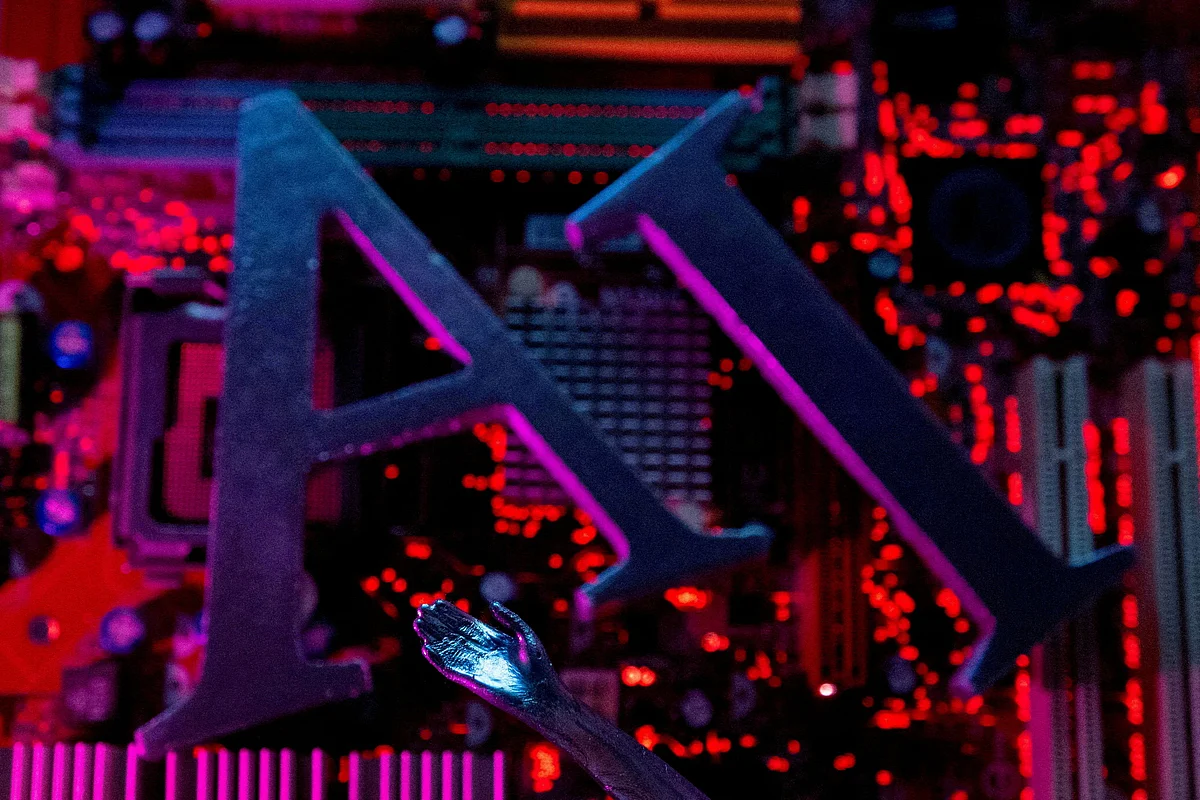
Is UAE's Digital Latifa The Answer To The Global Age Of AI Anxiety?
Global conversations on artificial intelligence (AI) oscillate between optimism and unease. As one of my Ethiopian students at MBZUAI noted, even against a backdrop of war, pandemic, populism, and climate change, AI is the greatest source of hype in recent times.
In Abu Dhabi, AI discourse is rooted in governance and public benefit. Through MBZUAI, the world's first university focused entirely on AI, the UAE builds fairness, trust, and civic participation into its AI deployment. Its 2017 AI Strategy, and the appointment of a Minister for AI have positioned Abu Dhabi as a hub for responsible development.
Recommended For YouStill, fears linger - AI raises concerns for disempowerment. In response, Digital Dubai has created 'Digital Latifa', a virtual persona that represents technological innovation while retaining an individual cultural identity.
Latifa uses familiar language to build trust among Emiratis – making AI approachable rather than alien. At the same time, she provides tips on safe AI use, ensures data privacy, and coaches families on how to use AI to manage household matters. Latifa blends cultural resonance with knowledge - empowering people to access AI-enabled services, from telemedicine to AI tutors.
For countries at the forefront of AI, scepticism is common. Latifa illustrates how relatable personas can humanise adoption – rooting innovation in shared tradition can help to demystify AI, and promote transparency through engagement. In societies with limited AI adoption, Latifa shows that embedding technology in public services can succeed when it is culturally anchored rather than generic. For emerging economies, where frameworks are inconsistent, a Latifa-like model can guide households, growing their confidence to prevent AI disillusion.
With safeguards, Digital Latifas could advance global equity. Providing access to education could close attainment gaps. In healthcare, symptoms could be triaged and patients connected to specialists. Welfare processes could be streamlined, cutting bureaucracy and saving resources. Latifa could support personal budgeting, bridging generational and societal divides in financial literacy.
Building an authentic Latifa
Human-computer interaction is key to shaping localised personas – deploying familiar emotions, context, and tone goes well beyond the gifts of a scripted chatbot. With human oversight, Latifa could evolve to build meaningful relationships - and in time, earn the trust of AI adopters.
But first, Latifa needs to listen. Feedback loops should shape her evolution alongside societal needs. Partnerships across government, academia, healthcare and business could expand her role from digital assistant to invaluable household adviser. This approach reflects the UAE's whole-of-nation model, with Dubai pioneering citizen-facing innovation, and Abu Dhabi serving as policy anchor, research hub, and convener – while its institutions are setting ethical benchmarks for the sector.
Trust is at the core of Abu Dhabi's AI strategy, and key to trust in any household is the knowledge that stored interactions with AI are safeguarded. With this in mind, the city has implemented regulatory sandboxes, where experimental technologies are tested, audited, and refined before rollout. Supported by institutions such as the Abu Dhabi Digital Authority and the Department of Government Enablement, innovation, governance, and trust are advancing hand in hand.
Like all AI tools, Digital Latifas should supplement, not replace, human effort. Oversight is vital - training data must be curated and audited to prevent bias. Access is critical - without devices or connectivity, households risk exclusion, so deployment must be matched with infrastructure, education, and affordability policies.
Ultimately, Digital Latifas could become symbolic bridges between individuals and an AI-enabled society. In some places, they may serve as mentors for those with AI anxieties - just as patients trust doctors who act with good bedside manner, people will more likely embrace AI that demonstrates empathy, efficiency, reliability, and authenticity.
In a century where trust is the new currency, Latifa demonstrates that a non-western approach to AI governance is possible, and that adoption is not about retiring humans, but about reimagining how we can co-exist with machines, as locals, in the future.
The writer is a visiting professor at MBZUAI and professor, University of Sussex.

Legal Disclaimer:
MENAFN provides the
information “as is” without warranty of any kind. We do not accept
any responsibility or liability for the accuracy, content, images,
videos, licenses, completeness, legality, or reliability of the information
contained in this article. If you have any complaints or copyright
issues related to this article, kindly contact the provider above.
















Comments
No comment